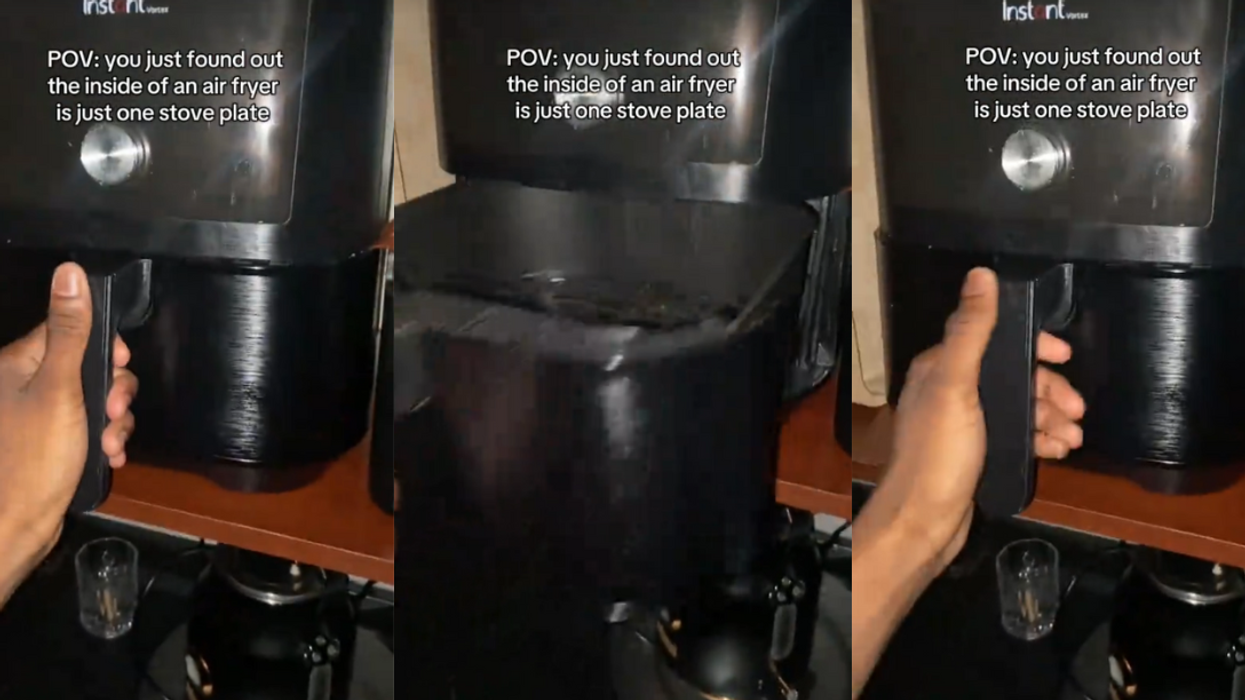A 21-year-old woman has told movingly how she was forced to give up her dreams of becoming a professional performer – because of the arthritis she was diagnosed with when she was just two years old.
Alex Delameilleure, from Hertford, was diagnosed with juvenile idiopathic arthritis (JIA), as a toddler after her parents noticed she was only able to walk on the balls of her feet.
Despite the condition, which means she suffers painful swellings in her knees, hands and jaw, Alex began dancing aged five, and grew up imagining she would one day become a professional, taking to the stage in musicals.

Young Alex (PA Real Life/Collect)
But in the end, she was forced to give up that plan, and said of her arthritis: “It’s definitely impacted on my life in more ways than just aches and pains.
“I’ve always loved musical theatre, but any dreams I had of becoming a performer have been quashed.”
When Alex was a tot, her mom Trudi Delameilleure, now 49, an accounts administrator, and dad Jamie Delameilleure, 52, a builder, initially thought their little daughter’s unusual and dainty way of walking was nothing to worry about.

Alex on a train (PA Real Life/Collect)
“They thought it was just a quirk, like I was imitating someone walking round in high heels,” Alex explained.
But six months later, a trip to the family doctor confirmed there was something more sinister at work and she was diagnosed with JIA – a condition that affects around 12,000 children under the age of 16 in the UK, according to Versus Arthritis.
Since her initial diagnosis, Alex has seen a lot of fluctuations and changes in her medication, and has been treated with pills, injections and oral medications.

Alex in Fiddler on the Roof (PA Real Life/Collect)
The dosage has been adjusted up and down too, with most changes due to adverse side effects like sickness, tiredness and poor liver function.
Alex added: “I was quite prone to flare ups when I was younger, so have had quite a few courses of steroids and steroid injections in my joints to improve the condition.”
Determined to keep up with her friends, music-loving Alex joined a tap and jazz class, which was held after school, as well as dabbling with modern dance and ballet, all of which took place over two nights a week.
She said: “When I was younger, I really wanted to be a professional performer, I adored musical theatre and always pictured myself on the stage.”
But gradually Alex had to face up to her condition. Throughout primary school she needed to wear special boots, with Velcro on top, that had ankle and arch support.
She recalled: “Having Velcro fastening shoes back then was a big deal, it automatically made you uncool.”

Alex with friends at a formal (PA Real Life/Collect)
She added: “I was desperate for a pair of lace-up pumps like all my friends, but sadly it wasn’t meant to be.”
And then, when she was in year three, aged seven, she was given a custom-built ‘adapter chair’ to sit on at school, as it put less pressure on her joints.
She said: “The chair was bright red and took up twice the space of a regular school chair.”

Alex with the Politics Societyl (PA Real Life/Collect)
She continued: “I remember the first time I saw it – I was absolutely mortified.”
Out in the playground, she faced difficulties too, adding: “Anything more strenuous than hopscotch would leave me utterly wiped.”
From the age of 11, Alex’s focus shifted on to singing, choir and musical theatre classes, to which she would dedicate four hours a week in school, and five hours a week out of school.
“Come show week I would basically leave school, eat food, head to the theatre and then be home at about 11pm after performing,’ Alex explained.
By her teenage years, though, Alex was struggling with her performing . She said: “”I simply wasn’t flexible enough to carry out even some of the simplest moves, even the warm-up and flexes would come back to haunt me the next day.
“I started taking anti-sickness tablets during the earlier years of secondary school because the treatment at the time was making me quite ill.”

Alex with her family (PA Real Life/Collect)
She added: “Throw in my weakened immune system and constant aches, and I was doomed to fail before I’d even started.”
And seeing what her brother Gene, who is six years younger, could do was a constant reminder of the limitations she faced.
She explained: “My brother is the opposite of me in so many ways, as he’s super sporty and is a member of the local boxing gym.”

Alex with boyfriend, Jack (PA Real Life/Collect)
Alex continued: “Name a sports club and he’s been on it, be it gymnastics or football.”
Finally, when she was 16, Alex threw in the towel for good.
She said: “I was forever having to skip classes that were too strenuous and miss out on parts of rehearsals.”

Alex with boyfriend, Jack (PA Real Life/Collect)
“Then, after my last performance as part of the chorus, it finally dawned on me I was never going to have a career in theatre,” she said.
Alex’s aches and pains were so bad, she was left unable to write up her notes at school, and with monthly bed days a regular occurrence, she would spend days sat in front of the telly watching nothing but current affairs programs.
She explained: “All those bed days meant I watched a lot of news and I got a taste for politics.”
She said: “With that, I waved goodbye to theatre and politics filled its place instead.”
Alex, who is currently in her third year of university, took up the subject at A-level, before going on to study it at undergraduate level at Warwick University.
She added: “It’s been a life-changing experience going to university and standing on my own two feet.”

Alex was diagnosed with arthritis at two years old (PA Real Life/Collect)
“I’ve tried my best to live a normal student life, but it’s not always been possible,” Alex concluded.
Alex had been told by doctors that she might grow out of her arthritis once she reached adulthood, but sadly this was not the case.
She said: “Once I hit my 20th birthday I realized that my arthritis was here to stay.”
“I was gutted at first but I’m very lucky, my condition is managed well, and now I suffer with localized inflammations more than anything else,” added Alex.
For Alex, “localized inflammations” mean that particular joints are affected more than others, depending on how often they are used.
“One month it can be my knees, the next my ankle or even my jaw,” she explained.

Alex with a friend at formal (PA Real Life/Collect)
Alex, who spent freshers’ week unable to join in with social nights out because of medication, met her boyfriend, Jack, 21, at a Politics Society social.
“Growing up I was never very confident talking about my condition, but with Jack it’s completely different,” she continued.
“I told him straight away not to expect romantic walks down the beach or adventurous days out exploring.”

Alex as a child, with her dad (PA Real Life/Collect)
She added: “Luckily, he’s super supportive and two years on, we’re as strong as ever.”
After taking part in work experience with arthritis charity Versus Arthritis last year, Alex has gained more confidence to open up about her condition.
She added: “I’ve learnt so much from my time working with Versus Arthritis – arthritis is not just an old person’s disease and now I’ve got the confidence to tell people that.”
“So many young people suffer from the condition and it’s never spoken about,” she continued.
“That’s why I’m speaking out, to help raise awareness and show other young people out there living with the condition that they’re not alone.”
Alex is now planning on kick starting a career in public affairs as a communications officer after she graduates this summer.

Alex in her final year of studies (PA Real Life/Collect)
She said: “People think that being diagnosed with arthritis is one step away from being put into a nursing home, but it’s not.
“You won’t necessarily need a walking stick and a Zimmer frame – I’m walking proof of that.”
Versus Arthritis supports young people with the condition and their families through its Young People and Families Service. For more information visit versusarthritis.org








 @realDonaldTrump/Truth Social
@realDonaldTrump/Truth Social @realDonaldTrump/Truth Social
@realDonaldTrump/Truth Social







 @rachelanderson471/TikTok
@rachelanderson471/TikTok @rachelanderson471/TikTok
@rachelanderson471/TikTok @rachelanderson471/TikTok
@rachelanderson471/TikTok @rachelanderson471/TikTok
@rachelanderson471/TikTok @rachelanderson471/TikTok
@rachelanderson471/TikTok @rachelanderson471/TikTok
@rachelanderson471/TikTok @rachelanderson471/TikTok
@rachelanderson471/TikTok @rachelanderson471/TikTok
@rachelanderson471/TikTok @rachelanderson471/TikTok
@rachelanderson471/TikTok @rachelanderson471/TikTok
@rachelanderson471/TikTok @rachelanderson471/TikTok
@rachelanderson471/TikTok @rachelanderson471/TikTok
@rachelanderson471/TikTok @rachelanderson471/TikTok
@rachelanderson471/TikTok @rachelanderson471/TikTok
@rachelanderson471/TikTok @rachelanderson471/TikTok
@rachelanderson471/TikTok